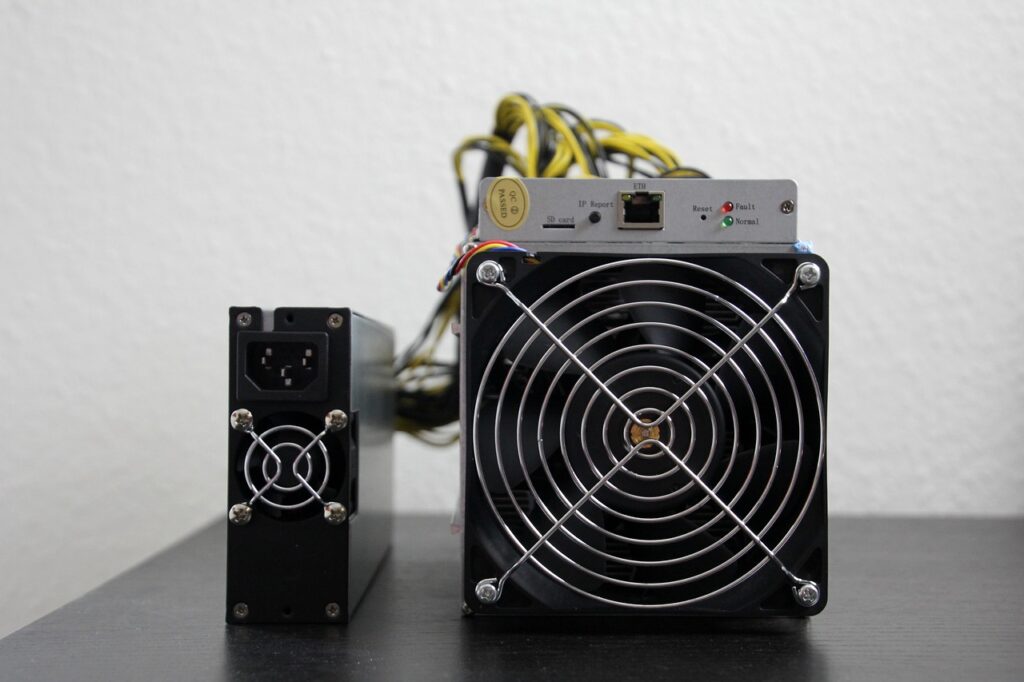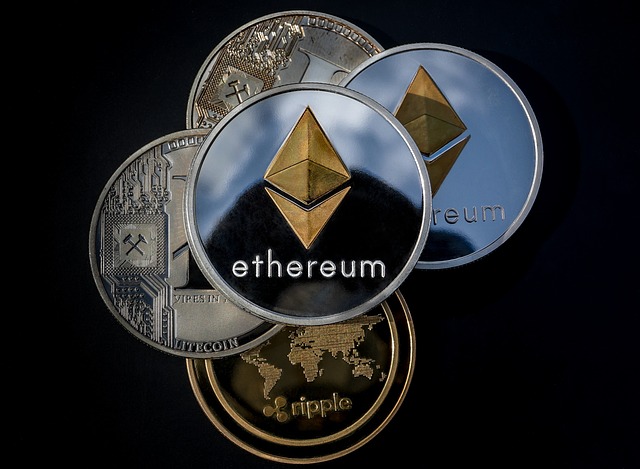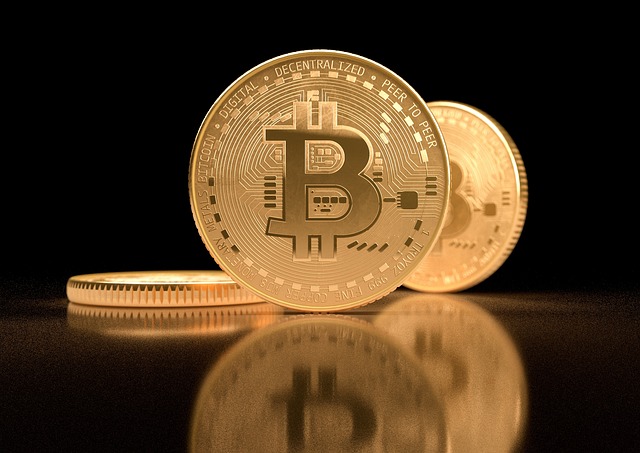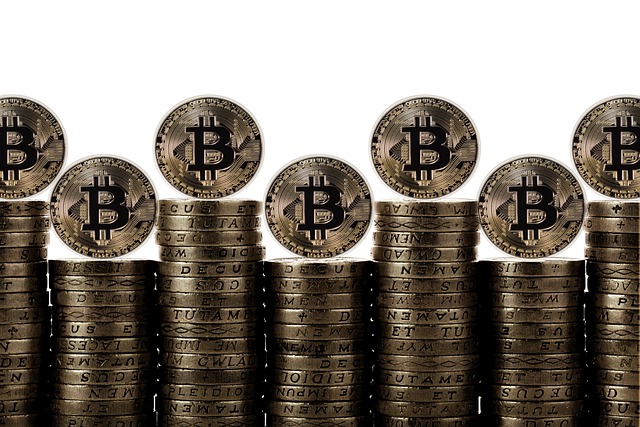DeFi’s Architectural Evolution: From Concept to Reality
DeFi’s Architectural Evolution: From Concept to Reality

The Genesis of Decentralized Finance: Exploring the origins and motivations behind the concept of decentralized finance.
In recent years, there has been a steady rise in the popularity and adoption of decentralized finance, or DeFi, across the globe. But where did this concept originate and what are the motivations behind it? To understand the genesis of decentralized finance, we need to go back to the advent of cryptocurrencies, particularly Bitcoin, which challenged the traditional centralized financial systems. Bitcoin introduced the concept of a peer-to-peer electronic cash system, eliminating the need for intermediaries like banks. This novel idea laid the foundation for decentralized finance, which seeks to decentralize and democratize various financial services and applications.
One of the key motivations behind the concept of decentralized finance is to empower individuals by providing them with more control over their financial transactions and assets. Traditional financial systems have often been criticized for their centralized nature, which leaves individuals vulnerable to censorship, surveillance, and limited access to basic financial services. Decentralized finance aims to address these issues by leveraging blockchain technology and smart contracts to create open, transparent, and permissionless financial systems. By removing intermediaries and allowing peer-to-peer interactions, decentralized finance strives to provide greater financial inclusion and autonomy to individuals worldwide.
The Building Blocks of DeFi: Understanding the fundamental components that form the basis of decentralized finance architecture.
Decentralized finance (DeFi) is built on a set of fundamental components that form the foundation of its architecture. These building blocks provide the infrastructure and tools necessary to enable the various functionalities and applications within the decentralized finance ecosystem.
One of the key building blocks of DeFi is the use of smart contracts. Smart contracts are self-executing agreements with the terms of the agreement directly written into code. They operate autonomously and eliminate the need for middlemen or intermediaries, thereby enabling seamless and efficient financial transactions. Smart contracts enable the creation of decentralized applications (dApps) that can perform a variety of financial functions, from lending and borrowing to decentralized exchanges and derivative trading. With the power of smart contracts, individuals can engage in financial activities without relying on traditional financial institutions, opening up new possibilities for global financial inclusion.
Smart Contracts: Unveiling the role of smart contracts in enabling autonomous and programmable financial applications.
Smart contracts are the backbone of decentralized finance (DeFi), enabling the seamless execution of financial transactions without intermediaries.

The key advantage of smart contracts lies in their autonomous and programmable nature. They allow for the creation of sophisticated financial applications that can automate a wide range of actions, from simple transactions to complex financial instruments. For example, decentralized lending platforms can use smart contracts to enable borrowers to take out loans without any interaction from traditional financial institutions. Similarly, decentralized exchanges can leverage smart contracts to automate the swapping of tokens based on predefined rules. The possibilities are vast, as smart contracts enable developers to create innovative and customized financial applications that operate independently and reliably on the blockchain.
Interoperability: Examining the importance of interoperability in facilitating seamless communication and collaboration between various DeFi protocols.
In the rapidly expanding world of decentralized finance (DeFi), interoperability plays a crucial role in enabling seamless communication and collaboration between different protocols. DeFi protocols are essentially separate financial systems built on blockchains, each with its own set of features and functions. However, without interoperability, these protocols would operate in isolation, limiting the potential for innovation and financial growth.
Interoperability allows for the exchange of information and assets between different DeFi protocols, creating a networked ecosystem that can harness the synergistic powers of various applications. It enables users to seamlessly transfer assets from one protocol to another, unlocking a wide range of possibilities for decentralized lending, trading, and other financial activities. With interoperability, users can access a broader pool of liquidity and take advantage of unique offerings provided by different protocols, leading to a more efficient and user-friendly DeFi experience. As the DeFi landscape continues to evolve, interoperability will play an increasingly vital role in fostering collaboration and driving the adoption of decentralized finance.
Scalability Challenges: Investigating the scalability hurdles faced by decentralized finance and the potential solutions being explored.
Scalability has become a major challenge for decentralized finance (DeFi) as its popularity continues to soar. With more users and transactions flooding the network, the current infrastructure struggles to keep up with the increasing demand. Slow transaction processing times and high fees have hindered the seamless and efficient functioning of DeFi applications.
To tackle these scalability hurdles, various solutions are being explored. One approach involves layer 2 solutions, which aim to alleviate the congestion on the main blockchain by processing transactions off-chain or employing sidechains. These solutions aim to enhance scalability without compromising on the security and decentralization of the network. Another potential solution is the use of interoperability protocols, which allow different blockchains to communicate and share information. This could enable DeFi applications to leverage the strengths of multiple blockchains, increasing scalability by distributing the computational load. As DeFi continues to evolve, addressing scalability will be crucial to ensure the widespread adoption and success of decentralized finance.
Security and Auditing: Highlighting the criticality of security and auditing measures in safeguarding user assets within the DeFi ecosystem.
In the world of decentralized finance (DeFi), security and auditing measures play a pivotal role in ensuring the safety of user assets. The decentralized nature of DeFi platforms makes them susceptible to various security risks, such as hacks, smart contract vulnerabilities, and malicious activities. As a result, it becomes crucial for DeFi projects to implement robust security protocols to safeguard user funds and protect against potential security breaches.
One of the key aspects of security in DeFi is smart contract auditing. Smart contracts, which form the backbone of many DeFi applications, are self-executing contracts with the terms of the agreement directly written into code. This code is publicly available, making it vulnerable to exploitation if not properly audited. Hence, thorough smart contract audits are essential to identify bugs, vulnerabilities, and potential security loopholes. Additionally, independent external audits can provide a second layer of validation and ensure that the smart contracts are secure and comply with best practices. By following stringent auditing processes, DeFi projects can instill confidence in their users and reassure them that their assets are well-protected within the DeFi ecosystem.
Liquidity and Market Making: Delving into the crucial role of liquidity providers and market makers in ensuring efficient trading and borrowing experiences in DeFi.
Liquidity providers and market makers play a vital role in the decentralized finance (DeFi) ecosystem by ensuring that there is ample liquidity available for trading and borrowing activities. They act as the backbone of DeFi platforms, facilitating the smooth flow of assets and enabling users to execute their transactions swiftly and efficiently.
Liquidity providers, often referred to as LPs, contribute their assets to liquidity pools, which are used to facilitate trading on decentralized exchanges (DEXs). By adding their tokens to these pools, LPs supply the necessary liquidity, allowing users to buy and sell assets seamlessly. In return for their contributions, LPs are rewarded with trading fees and/or specific tokens that represent their share of the overall liquidity pool.

Oracles: Unraveling the significance of oracles in bridging the gap between on-chain and off-chain data sources, enabling real-world data integration within DeFi applications.
Oracles play a crucial role in decentralized finance by bridging the gap between on-chain and off-chain data sources, enabling real-world data integration within DeFi applications. Traditional financial systems rely heavily on centralized intermediaries for accessing and verifying external data. However, in the decentralized world of DeFi, trustless and reliable data feeds are necessary for smart contracts to execute properly.
By acting as the link between the blockchain and external data sources, oracles provide a means for DeFi applications to access and leverage real-time information. This is vital for various financial use cases, such as price feeds for decentralized exchanges, loan collateral valuations, and insurance claims verification. Oracles enable smart contracts to interact with the outside world, opening doors for new possibilities in decentralized finance.
User Experience: Analyzing the evolving user experience in decentralized finance and the efforts being made to enhance accessibility and ease of use.
Decentralized finance, or DeFi, has seen a significant rise in popularity over the past few years. As more users flock to these platforms, the focus on enhancing user experience has become paramount. One of the key efforts being made to achieve this is improving accessibility and ease of use.
In the early days of DeFi, the user experience was often criticized for being complex and intimidating. Many users were deterred by the steep learning curve and technical jargon associated with these platforms. However, developers and designers have recognized this issue and are actively working to simplify the user interface and make it more intuitive. Efforts are being made to create user-friendly dashboards, streamline the onboarding process, and provide clear and concise instructions for navigating the platforms. With these improvements, DeFi is becoming more accessible to a wider audience, paving the way for its mass adoption.
Regulatory Considerations: Discussing
The world of decentralized finance, or DeFi, is thriving with innovation and potential. However, as this new financial ecosystem continues to grow and gain traction, regulatory considerations are becoming an increasingly important aspect to address. While the very essence of DeFi revolves around the concept of decentralization and autonomy, it is crucial to strike a balance between innovation and compliance with existing regulations.
Regulators across the globe are grappling with the challenge of regulating a technology that operates in a decentralized manner, without a central authority. The cross-border nature of DeFi further complicates this task, requiring regulators to collaborate and establish common frameworks. Striking the right balance between protecting investors and fostering innovation is paramount, as excessive regulations could stifle the growth and potential of this nascent industry. As DeFi expands, it becomes imperative for policymakers to engage with industry participants and experts to develop a clear regulatory framework that ensures consumer protection, fosters healthy market competition, and encourages responsible growth.
• Regulators are facing the challenge of regulating a decentralized technology without a central authority.
• The cross-border nature of DeFi adds complexity, requiring collaboration and common frameworks among regulators.
• Striking a balance between protecting investors and fostering innovation is crucial for the growth of the industry.
• Policymakers need to engage with industry participants and experts to develop a clear regulatory framework.
• The regulatory framework should ensure consumer protection, promote healthy market competition, and encourage responsible growth.
What is decentralized finance (DeFi)?
DeFi refers to a concept where financial applications and services are built on decentralized networks, such as blockchain, allowing for greater accessibility and control over one’s financial assets.
Why is interoperability important in DeFi?
Interoperability is crucial in DeFi as it enables different protocols and applications to seamlessly communicate and collaborate with each other. This allows for the creation of more robust and interconnected decentralized financial ecosystems.
What are smart contracts and how do they relate to DeFi?
Smart contracts are self-executing contracts with the terms of the agreement directly written into code. In DeFi, smart contracts play a vital role in enabling autonomous and programmable financial applications, eliminating the need for intermediaries.
What are the scalability challenges faced by decentralized finance?
DeFi currently faces challenges in scaling its infrastructure to handle a large number of transactions and users. Solutions like layer 2 protocols and sharding are being explored to overcome these hurdles.
Why is security and auditing important in DeFi?
Security and auditing measures are critical in DeFi to ensure the protection of user assets and mitigate the risk of hacks or vulnerabilities. Regular audits and robust security protocols help maintain trust and confidence within the ecosystem.
What role do liquidity providers and market makers play in DeFi?
Liquidity providers and market makers ensure that there is sufficient liquidity in decentralized exchanges and lending platforms. They facilitate efficient trading and borrowing experiences, enhancing the overall functionality of DeFi.
What are oracles and why are they significant in DeFi?
Oracles bridge the gap between on-chain and off-chain data sources, providing real-world data to smart contracts and decentralized applications. They enable the integration of external data within DeFi applications, enhancing their functionalities.
How is the user experience evolving in decentralized finance?
Efforts are being made to enhance the user experience in DeFi by improving accessibility, simplifying interfaces, and providing easy-to-use tools and wallets.

What regulatory considerations are associated with decentralized finance?
The regulatory considerations in DeFi revolve around areas such as compliance with existing financial regulations, addressing potential risks, and ensuring consumer protection. It is an evolving area where governments and regulators are exploring appropriate frameworks.
Todays Featured Product:
Buy, exchange and grow your crypto securely with a Ledger hardware wallet, combined with the Ledger Live app. It’s never been easier to keep your crypto safe and accessible. Buy direct from Ledger.com and get todays Special Offers Here.




